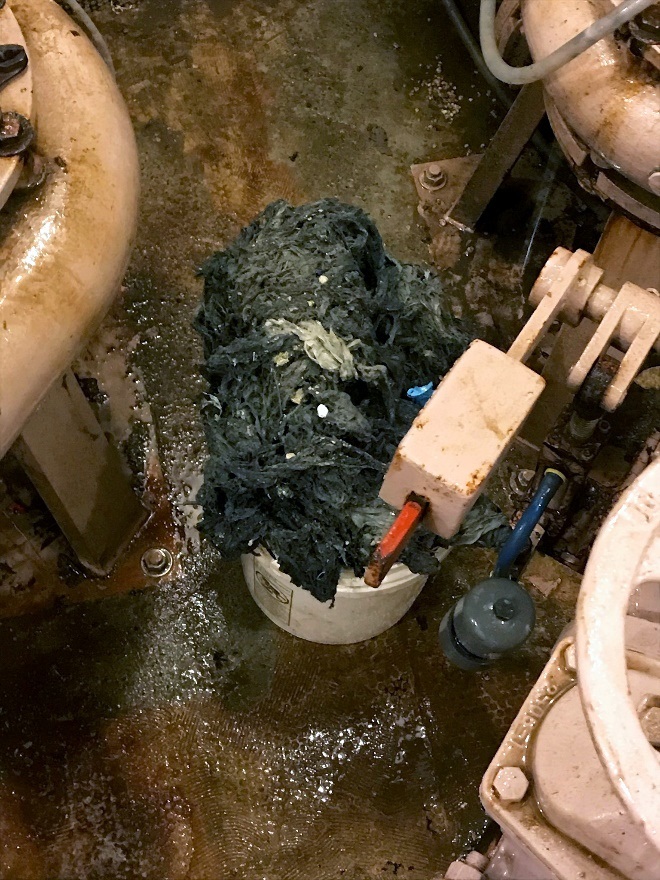AS REPORTS OF WASTEWATER SYSTEM DAMAGE INCREASE, DEM REITERATES: DISPOSE OF DISINFECTANT WIPES IN THE TRASH

Flushing cleaning wipes causes clogs and can lead to overflows in wastewater collection systems
PROVIDENCE – With new reports of damaged pump stations and overwhelmed screening facilities in Rhode Island wastewater collection and treatment systems, the Department of Environmental Management (DEM) is once again urging all Rhode Islanders to refrain from flushing disinfectant wipes – including those labeled “flushable” – and instead, to dispose of them in the trash. DEM is also asking retailers to post signs alerting customers to not flush various wipes, even if the product is labeled as “flushable.”
“Proper functioning of our wastewater treatment system is critical to protecting public health by preventing viruses and bacteria from getting into your homes, onto roadways and into our waterways,” said DEM Director Janet Coit. “Among the other protective measures needed at this time, Rhode Islanders need to be vigilant about what they do and don’t flush!”
A pump removed from the Congdon Street pump station in Narragansett yesterday was clogged with wipes and paper towels.
This week, the Town of Narragansett reported a failure of two pumps at one of the town’s sewer pumping stations. The damage resulted from a buildup of wipes clogging the inner core of both pumps. While the swift action of town wastewater staff prevented a release of sewage to the environment, the cost of responding to the failure, setting up temporary bypass systems, and eventual repairs is estimated at $7,300.
Earlier in the week, wastewater crews in the Town of Burrillville reported similar buildups of wipes in their collection systems.
Whether your home or business is connected to the public sewer system or has an onsite wastewater treatment system, you should never flush any type of wipes, including baby wipes and those labeled flushable, down the toilet. Instead, you should place these products in the trash for proper disposal.
In addition to causing clogs and wastewater collection system overflows, flushing wipes can also lead to sewer back-ups in basements and damage wastewater treatment equipment. Although some of these products may be labeled as flushable, most wipes are made with fine plastic mesh that does not break down in water as toilet paper does. These wipes are clogging and damaging expensive wastewater pumps and sewer lines in Rhode Island and across the nation.
At a time when we’re washing our hands and wiping down surfaces more frequently, DEM is strongly urging citizens and businesses to do their part and help avoid sewer system damage and overflows by disposing of these wipes in the trash rather than flushing them away.
According to the Water Environment Association, the following items should NEVER be flushed:
Baby wipes and diapers
Rags and towels
Cotton swabs
Syringes
Candy and other food wrappers
Clothing labels
Cleaning sponges
Toys
Plastic items of any kind
Aquarium gravel or kitty litter
Rubber items such as latex gloves
Cigarette butts
Sanitary napkins
Hair
Underwear
Disposable toilet brushes
For more information, visit the Water Environment Federation website at
https://www.wef.org/resources/for-the-public/public-information/fact-sheets/
and click on “It’s a Toilet, Not a Trash Can!” in the left-hand menu.
For more information on DEM programs and initiatives, visit www.dem.ri.gov. Follow us on Facebook at www.facebook.com/RhodeIslandDEM or on Twitter (@RhodeIslandDEM) for timely updates.
